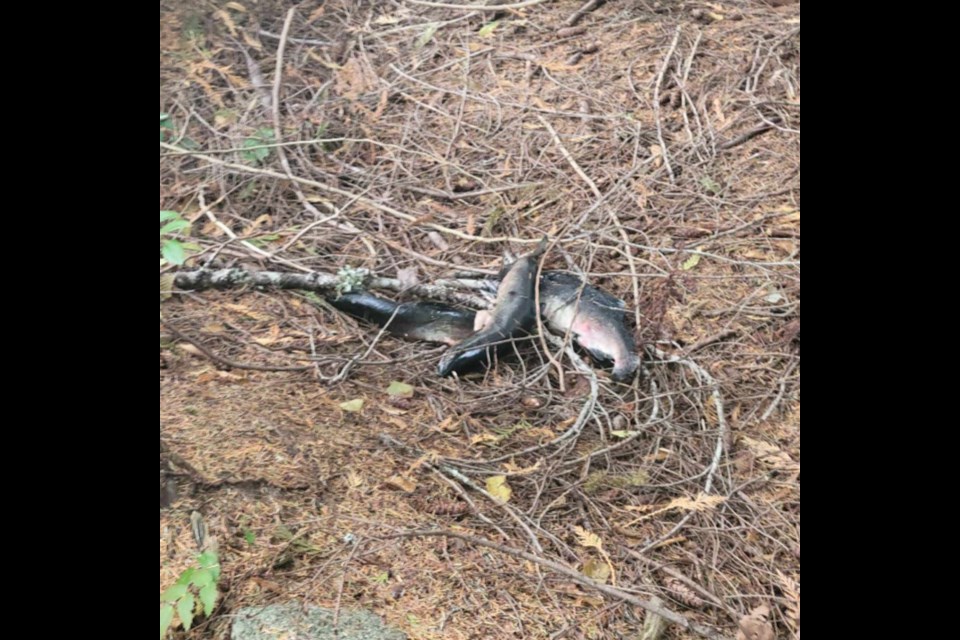According to Wildwood resident Shelly Foster, she has witnessed time and time again, over many years, folks dumping animal carcasses at the end of a dead-end road in her qathet region neighbourhood.
“We’ve been dealing with this for years, less so since the trails have become more popular,” said Foster, in an email to the Peak. “Deer carcasses, turkey leftovers, garbage and now fish; our pets get into this.”
At the end of September of this year, once again, Foster said she observed a person driving to the end of the unpaved area near Sutherland Avenue, dumping fish carcasses into what has seemingly become “an unofficial dump zone.”
“I went back and cleaned up,” said Foster. “It’s a common occurrence on our dead-end road.”
The fish appeared to be recently caught, cleaned and dumped, she added.
“I went back and cleaned up and offered them to Powell River Orphaned Wildlife Society [PROWLS],” said Foster. “The fish are now in their freezer.”
Foster said she has cleaned up turkey carcasses, and occasionally she has witnessed pets that have dragged portions of deer carcasses out of the bush. Her main concern is having bear attractants around. She said her community is encouraging folks to not leave food or anything that might encourage bears to come around.
Abby McLennan, a founding member of the Let’s Talk Trash Team, said she is disappointed to hear about this happening. “Residents can dispose of this type of material through the community compost pilot program,” explained McLennan. “Fish and birds are relatively small and should be easy enough to divert into the compost program.”
McLennan also said that, although deer are larger, they can be transported in either a truck or even a plastic bag to Sunshine Disposal and Recycling and then placed (without the bag) into the larger compost collection.
“There are obvious wildlife attractant issues with residents disposing of this material, or any food waste or yard waste in general, in this way,” said McLennan. “Grass clippings let off a rich nitrogen smell that can attract bears and other wildlife, and attracting wildlife puts community members and their pets at risk, and habituates wildlife, which then threatens their life.”
As the saying goes, “a fed bear is a dead bear,” meaning once a bear is habituated to finding human food and other waste, it usually becomes a danger, and thus conservation officers have to become involved.
Sunshine Disposal and Recycling, located at 4484 Franklin Avenue, is open for compost drop off Wednesday, Friday and Saturday from 10 am to 4 pm. Residents can currently access the community organics program free of charge.
Residents can officially make a report through the Report All Poachers and Polluters (RAPP) service, either via the online form or by calling 1.877.952.7277.
Join the Peak’s email list for the top headlines right in your inbox Monday to Friday.




